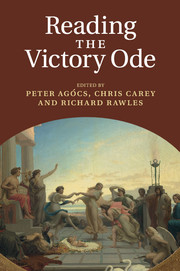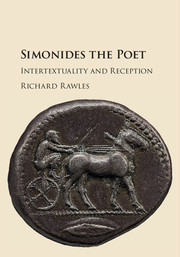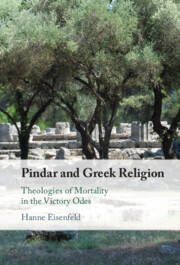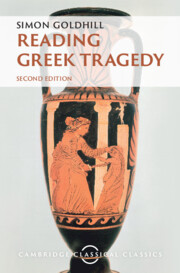Reading the Victory Ode
The victory ode was a short-lived poetic genre in the fifth century BC, but its impact has been substantial. Pindar, Bacchylides and others are now among the most widely read Greek authors precisely because of their significance for the literary development of poetry between Homer and tragedy and their historical involvement in promoting Greek rulers. Their influence was so great that it ultimately helped to define the European notion of lyric from the Renaissance onwards. This collection of essays by international experts examines the victory ode from a range of angles: its genesis and evolution, the nature of the commissioning process, the patrons, context of performance and re-performance, and the poetics of the victory ode and its exponents. From these different perspectives the contributors offer both a panoramic view of the genre and an insight into the modern research positions on this complex and fascinating subject.
- The first collection of papers ever devoted to this genre
- All the contributors are leading experts in their field and at the cutting edge of the relevant research
- Gives a three-dimensional sense of the victory ode, in its literary-historical, social and political environments
Product details
No date availablePaperback
9781107527515
444 pages
228 × 152 × 23 mm
0.63kg
15 b/w illus.
Table of Contents
- Part I. The Lost History of Epinician:
- 1. Early Epinician: Ibycus and Simonides Richard Rawles
- 2. The lost Isthmian Odes of Pindar Giovan Battista D'Alessio
- 3. Epinician sounds: Pindar and musical innovation Lucia Prauscello
- 4. Pindar and his patrons Ewen Bowie
- 5. What happened later to the families of Pindaric patrons – and to Epinician poetry? Simon Hornblower
- Part II. Contexts of Performance and Re-Performance:
- 6. Performance, re-performance, and Pindar's audiences A. D. Morrison
- 7. Performance and re-performance: the Siphnian treasury evoked Lucia Athanassaki
- 8. Representations of cult in Epinician poetry Franco Ferrari
- 9. Epinician and the Symposion: a comparison with the Enkomia Felix Budelmann
- 10. Performance and genre: reading Pindar's ΚΩΜΟΙ Peter Agócs
- 11. Pindar's 'difficulty' and the performance of Epinician poetry: some suggestions from ethnography Rosalind Thomas
- Part III. Critical Approaches to the Victory Ode: Rhetoric, Imagery, and Narrative:
- 12. Poet and public: communicative strategies in Pindar and Bacchylides Glenn W. Most
- 13. Image and world in Epinician poetry G. O. Hutchinson
- 14. Metaphorical travel and ritual performance in Epinician poetry Claude Calame
- 15. Bacchylidean myths David Fearn
- 16. Reading Pindar Michael Silk.






